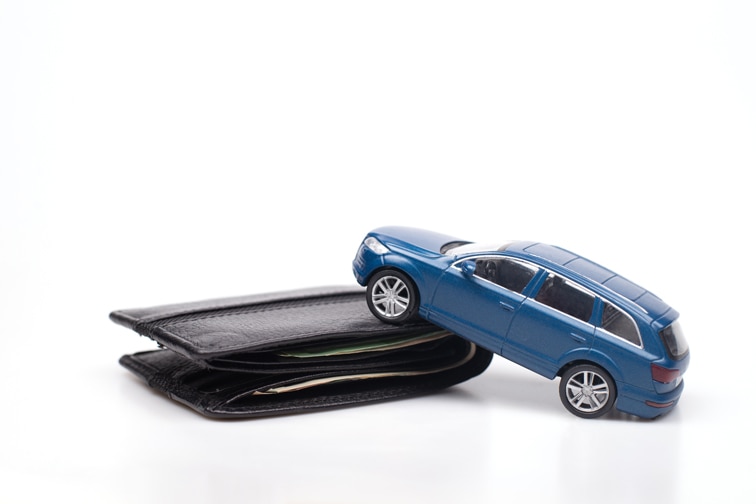The Guide: How to Save for a Car
Learn how to set a budget and develop a savings plan to get the car you want.
 Shutterstock
Shutterstock
It's time for a new car. You've looked at a few models and have a good idea of what you'd like. Now comes the next hurdle — paying for it.
Here's the good news: Learning how to save for a car isn't as complex as it seems. By understanding the costs up front, setting your budget, and developing a savings plan, you may be much closer to driving your new car off the lot than you think.
This guide includes a few tips to get you started.
How Much Do I Need To Save for a Car?
Start by setting your budget. Determine the amount of spending money you have available; that's a crucial factor moving forward. When calculating your budget, consider more than just the cost of the car. You also need to include money for general maintenance, insurance, and gas.
If you currently have a car, you may have the option to trade it in. Searching your car's make, model, year, and current mileage online can give you a general idea of what it's worth. Trading in your current car can help lower the total amount of money you need to purchase the new car. Factor in those costs and considerations, and you'll have a much clearer picture of your finances.
How Much Do I Need for a Car Down Payment?
In general,
Typically, a larger down payment can help reduce your monthly payments, because you've paid a higher percentage of the total cost up front. In addition, your lender may offer better terms, such as lower interest rates, when you make a bigger down payment. Over the life of your car loan, these better rates can add up.
How Does My Credit Score Affect How Much I Need to Save?
Your credit score is often a key factor in determining any car loan. If your score is low, you may have less favorable terms. This means you'll either have a higher monthly payment or will have to save for a higher down payment to offset the risk posed by your credit score.
With a lower credit score, your annual percentage rate (APR) could be double or even triple that of someone with higher credit. Over the course of your loan, you could pay thousands extra in interest.
Consider keeping an eye on your credit score. Many banks provide customers with their credit scores for free, but if your bank does not, each of the three credit reporting bureaus offers a free credit report every year. Visit
Are There Other Hidden Costs When Buying a Car?
Knowing how much to save for a car doesn't end with the number the dealer gives you. There are always other fees and expenses, both during and after the buying process.
First, you may need to cover the sales tax on your car. Depending on where you live, this could be zero or upwards of a few thousand dollars. There's also state license and registration fees, as well as any inspections required by your state. Finally, you may also need to cover documentation fees, which go to the dealer for preparing the contract.
With those fees set, you can start to consider insurance. Virtually every state has some form of minimum requirements to cover your car. You can call an insurance agent or do some research online to learn what kind of coverage you'll need.
Consider Insurance Costs When Saving for a New Car
Many factors determine your auto insurance premiums. These include the type of car you drive, the cost of the car, its overall safety record, how likely it is to be stolen (you can consult
As you narrow down your car search, you can compare rates by shopping around for insurance. Also, when you speak with your current agent about the car you're considering, they can usually give you some insight into the costs of a new policy.
Final Tips
Now that you know the ins and outs of purchasing a new vehicle, here are some practical tips on how to save for a car.
Set your savings target. Determine your budget, and only look at cars within that price range. Then you can calculate the money you need for your down payment.
Automate your savings. Depositing as much money as you can for your savings account every week can help you save faster. You may even want to set up a separate savings account for just your down payment.
Track your progress and set milestones. These can help you to feel like you're moving in the right direction.
Pay off other debt. If you currently have a lot of debt, use this time before applying for a loan to pay it down if you can and improve your credit score.
The more you know about the costs from the start, the better you can save for your new purchase.
Written by humans.
Edited by humans.
 Liz Froment
Liz FromentI love learning about money — deals, financing, and what to avoid. All that came in handy after my own extensive car search, where I put everything I learned about the financial side of things to use. That's where I can help you too. I want to give you tools to help you find the best vehicle that will fit your practical and financial needs.
Related articles
View more related articles